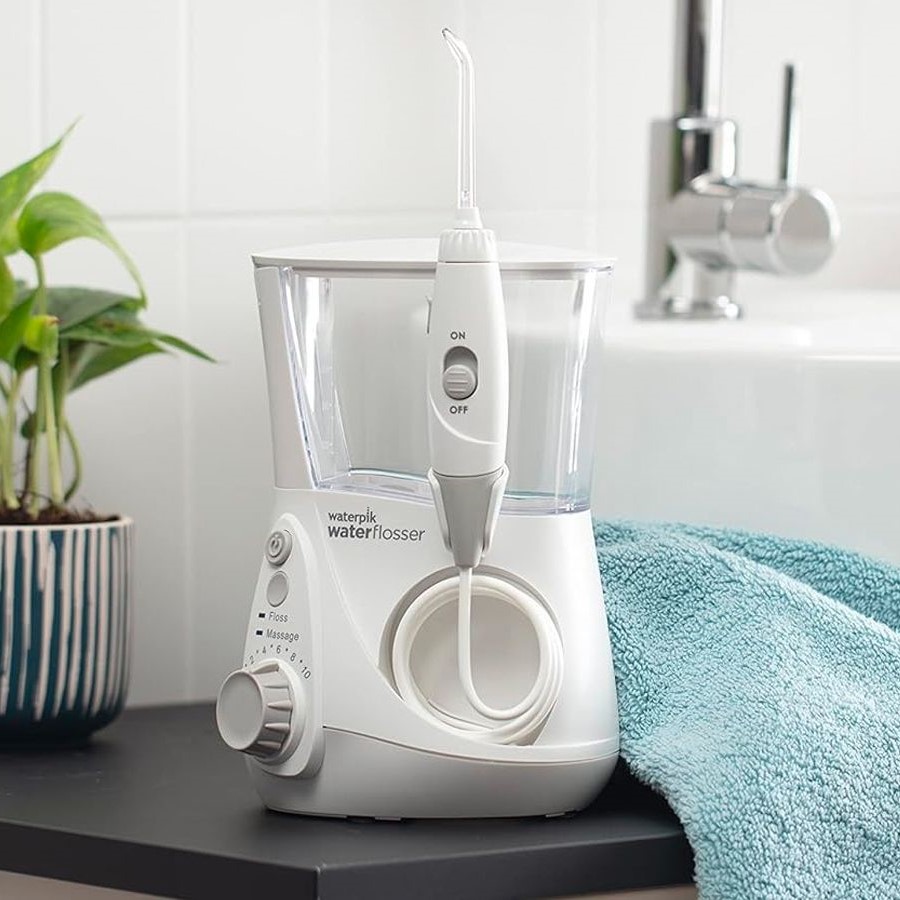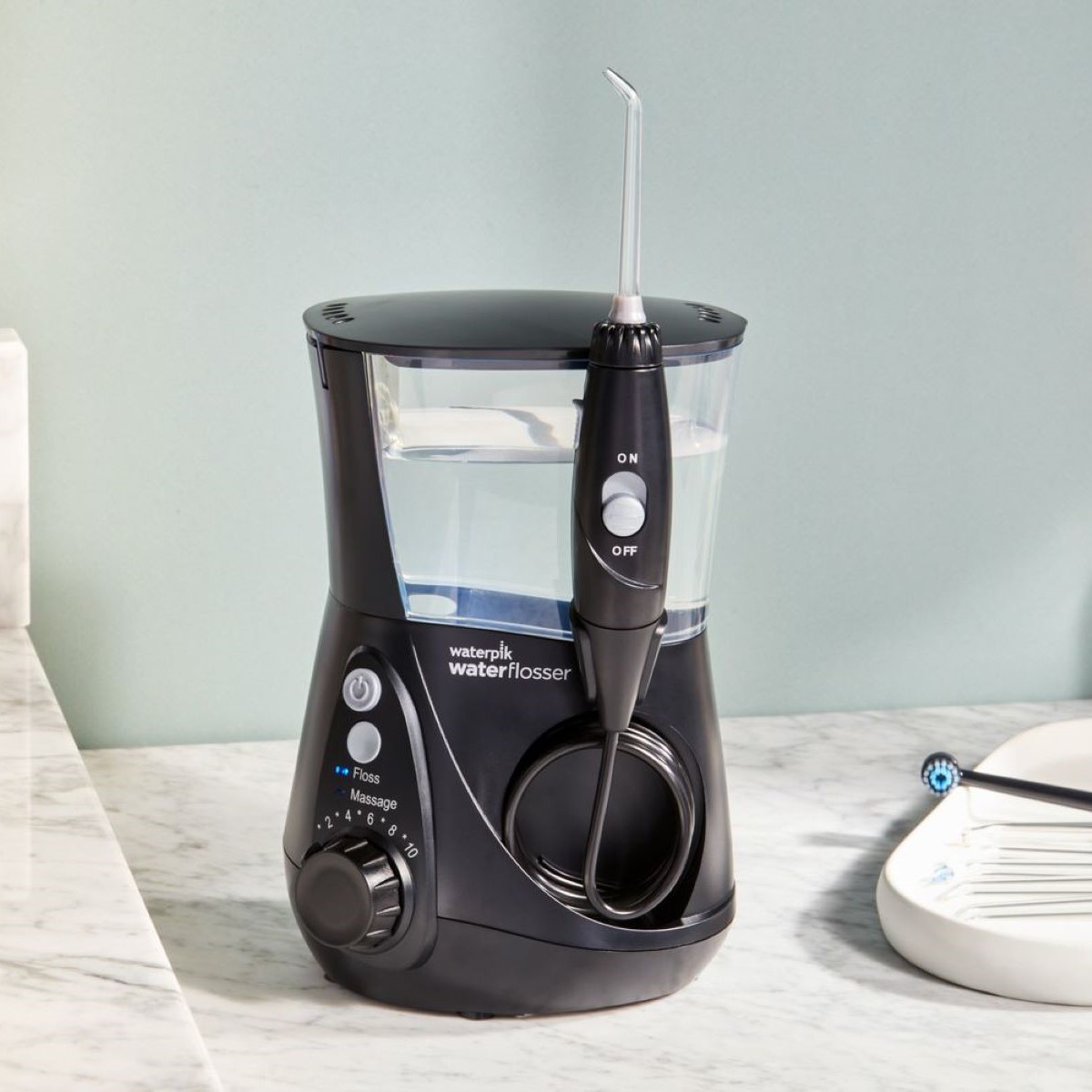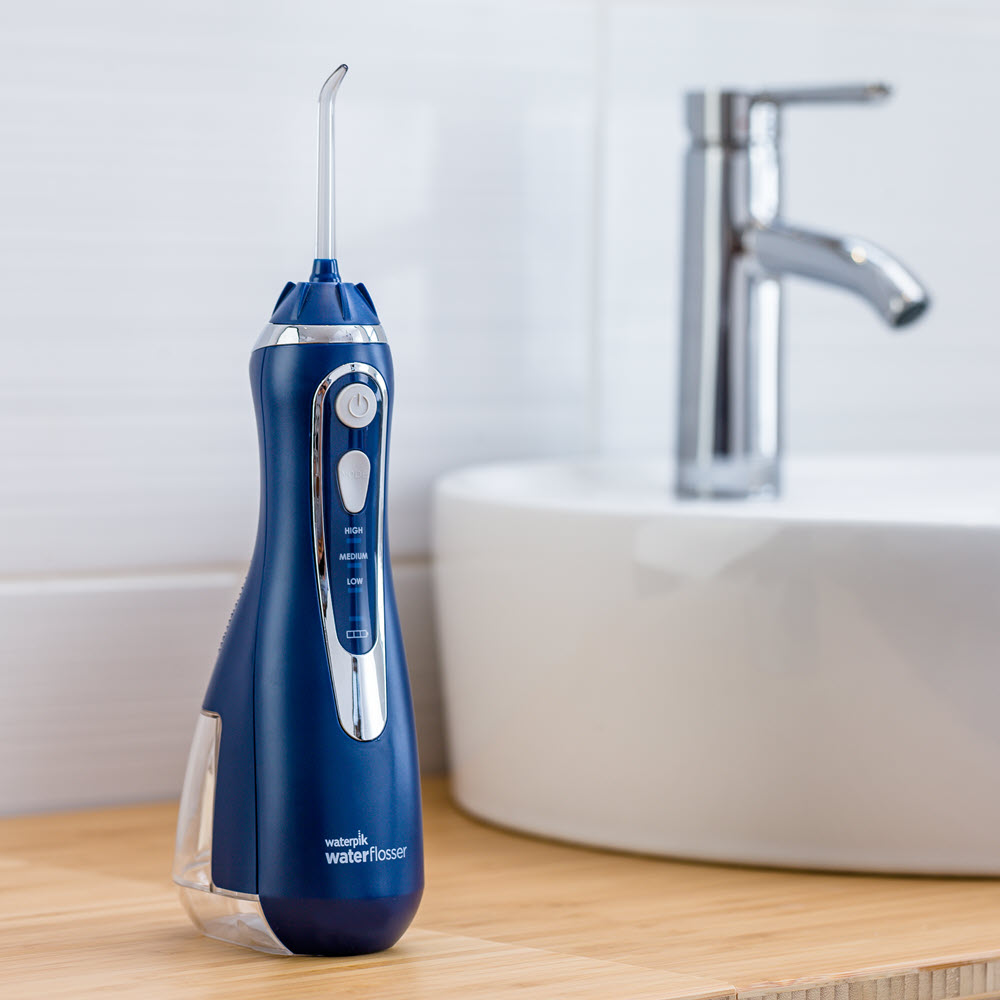Introduction
Maintaining optimal oral hygiene is paramount for overall health, and flossing plays a critical role in achieving this goal. Among the various flossing methods available today, the debate often centers around whether a water flosser is better than string floss. This comprehensive analysis delves into the efficacy, benefits, drawbacks, and suitability of both water flossers and string floss, aiming to provide a clear understanding for individuals seeking the best method for their dental care routine.
Understanding the Basics: Water Flossers vs. String Floss
What is a Water Flosser?
A water flosser, also known as an oral irrigator, is a device that uses a stream of pulsating water to remove plaque and food particles from between the teeth and below the gumline. Water flossers are particularly beneficial for individuals with braces, implants, crowns, or bridges, as the water stream can effectively clean around these dental appliances.
What is String Floss?
String floss, typically made of nylon or other synthetic materials, is a thin filament used to manually remove debris and plaque from between the teeth. Traditional string flossing involves maneuvering the floss between each tooth to achieve thorough cleaning, requiring a certain level of dexterity and technique to be effective.
Effectiveness in Plaque Removal
Comparative Studies on Plaque Reduction
Research indicates that both water flossers and string floss are effective in reducing plaque, a major contributor to tooth decay and gum disease. A study published in the Journal of Clinical Dentistry found that water flossers could remove plaque comparably to string floss when used correctly. However, the efficacy of either method largely depends on the user’s technique and consistency in daily use.
Depth of Clean
String floss has a slight edge in mechanically disrupting plaque biofilm directly between teeth, which is crucial for preventing cavities. The physical action of string floss can scrape away plaque more effectively in tight interdental spaces where water flow might be less forceful or directed differently.
Gum Health and Disease Prevention
Benefits of Water Flossers
Water flossers are particularly beneficial for individuals with sensitive gums or those prone to gum disease. The gentle pulsating water stream can massage the gums, promoting blood circulation and reducing inflammation. Studies have shown that water flossers can significantly reduce gingival bleeding and inflammation, making them a suitable option for those with periodontal issues.
String Floss and Gum Health
Proper use of string floss can also improve gum health by removing plaque and preventing gingivitis. However, improper flossing technique can sometimes lead to gum irritation or bleeding. It requires practice to achieve the correct motion that cleans effectively without harming the delicate gum tissue.
User-Friendliness and Accessibility
Ease of Use: Water Flossers
Water flossers are user-friendly, especially for individuals with limited dexterity, such as the elderly or those with disabilities. The device handles the pressure and movement, allowing users to simply guide the water stream along their gumline and between teeth without the need for manual manipulation.
Ease of Use: String Floss
String floss requires a certain level of skill and coordination to use effectively. Beginners may find it challenging to maneuver the floss between teeth without snapping or skipping areas. However, with practice, most individuals can become proficient in manual flossing, making it a versatile option without the need for additional equipment.
Cost and Maintenance Considerations
Cost Analysis
When comparing costs, string floss is generally more affordable than water flossers. A spool of string floss is inexpensive and widely available, making it a cost-effective option for daily use. On the other hand, water flossers represent a higher upfront investment, with prices varying based on features and brand.
Maintenance and Consumables
String floss is low-maintenance, requiring only periodic replenishment of floss supplies. Water flossers, while durable, may have ongoing costs related to replacement tips and occasional maintenance to ensure optimal functionality. Users should consider these factors when deciding between the two methods.
Portability and Convenience
Portability of Water Flossers
Water flossers tend to be bulkier and less portable compared to string floss. Travel models are available, but they may not offer the same performance as their countertop counterparts. This can be a consideration for individuals who travel frequently and seek a convenient flossing option on the go.
Portability of String Floss
String floss excels in portability, easily fitting into purses, pockets, or travel kits without taking up much space. Its lightweight and compact nature make it an ideal choice for maintaining oral hygiene while away from home, without the need for additional power sources or accessories.
Suitability for Different Dental Conditions
Water Flossers for Orthodontic Needs
For individuals with braces, implants, or dental bridges, water flossers offer a superior cleaning method. The water stream can navigate around orthodontic appliances, effectively removing trapped food particles and reducing the risk of plaque buildup that can lead to decalcification and gum disease.
String Floss for General Use
String floss is versatile and suitable for most individuals without complex dental appliances. It provides effective interdental cleaning when used correctly, making it a reliable choice for maintaining general oral hygiene and preventing dental issues in a wide population.
Integration into Daily Oral Hygiene Routines
Water Flossers as an Adjunct to Brushing
Incorporating a water flosser into daily oral hygiene routines can enhance overall cleanliness by targeting areas that brushing alone might miss. Many dental professionals recommend using a water flosser in conjunction with brushing and, for some, traditional flossing for comprehensive care.
String Floss as a Standalone Solution
For those who prefer simplicity or are looking for a cost-effective method, string floss serves as a standalone solution that effectively complements brushing. Daily flossing with string floss can significantly reduce the risk of plaque accumulation and gum disease, maintaining oral health without the need for additional devices.
Expert Recommendations and Dental Professional Insights
Dental Associations’ Stance
Many dental associations acknowledge that both water flossers and string floss are effective in maintaining oral hygiene. The choice between them often depends on individual needs, preferences, and specific dental conditions. Dental professionals may recommend one method over the other based on a patient’s unique circumstances.
Professional Endorsements
Leading dentists and orthodontists often endorse the use of water flossers for patients with braces, implants, or sensitive gums, citing their effectiveness in cleaning hard-to-reach areas. Conversely, they also recognize the proven benefits of string floss in plaque removal and cavity prevention when used correctly and consistently.
Personal Preferences and Lifestyle Factors
Lifestyle Influences on Choice
Personal lifestyle factors, such as time constraints, manual dexterity, and personal comfort, play a significant role in choosing between a water flosser and string floss. Individuals with busy schedules may prefer the quicker, automated process of a water flosser, while those who enjoy a hands-on approach might favor string flossing.
Comfort and Sensory Experience
User comfort varies between methods; some may find the pulsating water stream of a water flosser soothing and invigorating, while others might prefer the tactile sensation of string flossing. Personal comfort can influence adherence to regular flossing habits, ultimately impacting oral health outcomes.
 Conclusion: Is Water Flosser Better Than String?
Conclusion: Is Water Flosser Better Than String?
In conclusion, the question of whether a water flosser is better than string floss does not have a universally definitive answer. Both methods hold significant benefits and can play crucial roles in maintaining oral health. While water flossers offer unique advantages, especially for those with specific dental needs, traditional string floss continues to be a reliable option grounded in decades of research.
Ultimately, the best approach involves evaluating personal needs and preferences and potentially incorporating both methods to achieve comprehensive dental care. By considering the individual aspects of each tool, you can make an informed decision about your oral hygiene routine. So, is water flosser better than string? It depends on the user’s specific needs, but both can prove vital in the journey to optimal oral health.

